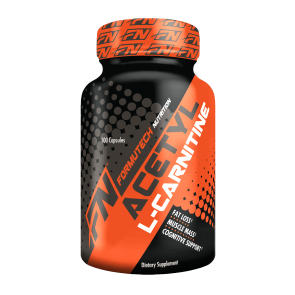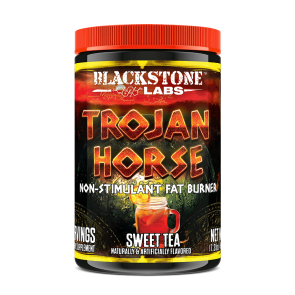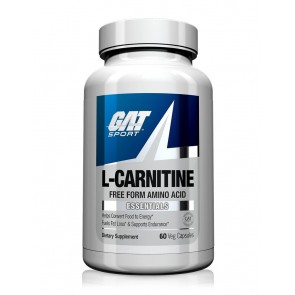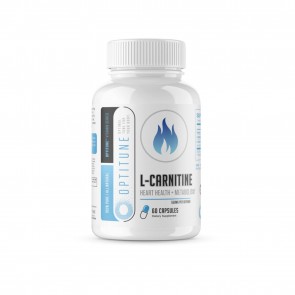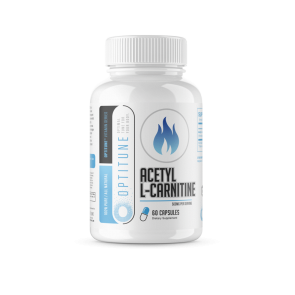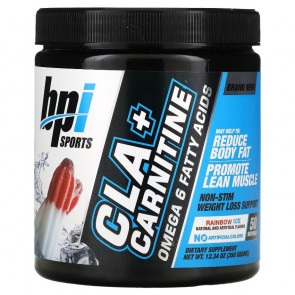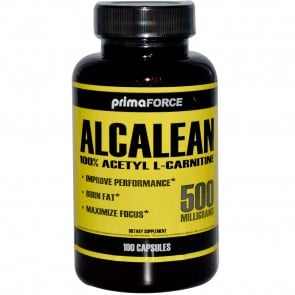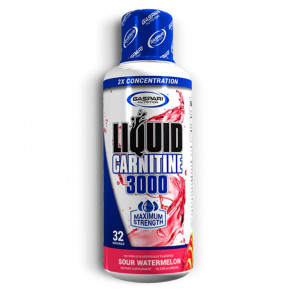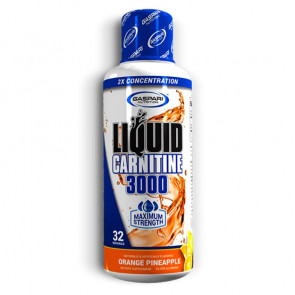L-Carnitine
Carnitine, derived from an amino acid, is found in nearly all cells of the body. Its name is derived from the Latin carnus or flesh, as the compound was isolated from meat. Carnitine is the… Read more
-
Formutech Nutrition Acetyl L-Carnitine 100 Capsules
Price: $16.95
Regular Price: $39.95
-
Bluebonnet L-Carnitine 1100mg Raspberry Flavor 8 fl oz
Price: $16.38
Regular Price: $20.48
-
Blackstone Labs Trojan Horse Sweet Tea 60 Servings
Price: $32.99
Regular Price: $54.99
-
GAT Essentials Liquid L-Carnitine 1500 Lemon Blast 16 OZ
Price: $11.99
Regular Price: $16.99
-
GAT Essentials Liquid L-Carnitine 1500 Green Apple 16 OZ
Price: $11.99
Regular Price: $16.99
-
GAT Essentials Liquid L-Carnitine 1500 Blue Raspberry 16 OZ
Price: $11.99
Regular Price: $16.99
-
GAT Essentials L-Carnitine 60 Capsules
Price: $12.99
Regular Price: $16.99
-
VMI Sports L-Carnitine 1500 Heat
Price: $0.00
-
VMI Sports L-Carnitine 1500 Heat Peach Mango 3.07oz 30 Servings
Price: $26.39
Regular Price: $32.99
-
Optitune L-Carnitine 60 Capsules
Price: $19.99
Regular Price: $34.99
-
Optitune Acetyl L-Carnitine 60 Capsules
Price: $19.99
Regular Price: $24.99
-
MHP L-Carnitine 60 Capsules
Price: $9.99
Regular Price: $19.99
-
Top Secret Nutrition Fireball L-Carnitine Igniter Red Hot Cinnamon 31 Servings
Price: $19.99
Regular Price: $31.33
-
Top Secret Nutrition Fireball L-Carnitine Igniter Pineapple 31 Servings
Price: $19.99
Regular Price: $31.33
-
Top Secret Nutrition Fireball L-Carnitine Igniter Apple 31 Servings
Price: $19.99
Regular Price: $31.33
-
Top Secret Nutrition Fireball L-Carnitine Igniter Cherry 31 Servings
Price: $19.99
Regular Price: $31.33
-
MuscleTech Platinum 100% L‑Carnitine 60 Capsules
Price: $10.99
Regular Price: $59.99
-
Country Life - Acetyl L-Carnitine (120 Vegan Capsules)
Price: $44.92
Regular Price: $59.89
-
BPI Health CLA + Carnitine Fruit Punch 300 Grams (50 Servings)
Price: $27.69
Regular Price: $49.99
-
BPI Health CLA + Carnitine Watermelon Freeze 300 Grams (50 Servings)
Price: $27.69
Regular Price: $49.99
-
BPI Health CLA + Carnitine Rainbow Ice 300 Grams (50 Servings)
Price: $27.69
Regular Price: $49.99
-
PrimaForce Alcalean 500 mg 100 Vegetarian Capsules
Price: $14.99
Regular Price: $34.99
-
Gaspari Nutrition Liquid Carnitine 3000 Sour Watermelon 16 fl oz
Price: $24.95
Regular Price: $31.99
-
Gaspari Nutrition Liquid Carnitine 3000 Orange Pineapple 16 fl oz
Price: $24.95
Regular Price: $31.99
Carnitine, derived from an amino acid, is found in nearly all cells of the body. Its name is derived from the Latin carnus or flesh, as the compound was isolated from meat. Carnitine is the generic term for a number of compounds that include L-carnitine, acetyl-L-carnitine, and propionyl-L-carnitine.
Carnitine plays a critical role in energy production. It transports long-chain fatty acids into the mitochondria so they can be oxidized ("burned") to produce energy. It also transports the toxic compounds generated out of this cellular organelle to prevent their accumulation. Given these key functions, carnitine is concentrated in tissues like skeletal and cardiac muscle that utilize fatty acids as a dietary fuel.
The body makes sufficient carnitine to meet the needs of most people. For genetic or medical reasons, some individuals (such as preterm infants), cannot make enough, so for them carnitine is a conditionally essential nutrient.
A number of published studies on athletes have shown that l-carnitine supplementation supports exercise performance. Athletes have a requirement for more carnitine than they are capable of producing endogenously (inside the body). L-carnitine may be particularly important during periods of intense exercise as it may help to reduce post-exercise lactic acid accumulation and may increase maximal work output. It may also preserve muscle glycogen levels during exercise. As reported in the majority of studies, an increase in maximal oxygen consumption and a lowering of the respiratory quotient indicate that dietary l-carnitine has the potential to stimulate lipid metabolism (e.g. the utilization of fatty acids for fuel). Treatment with l-carnitine has also been shown to induce a significant post-exercise decrease in plasma lactate, which is formed and used continuously under fully aerobic conditions. Data from preliminary studies have indicated that l-carnitine supplementation can attenuate the deleterious effects of hypoxic (low oxygen) training and speed up recovery from exercise stress. Recent data have indicated that l-carnitine plays a decisive role in the prevention of cellular damage and favorably affects recovery from exercise stress. Additionally, among its other benefits for brain, body composition, and mitochondrial health, l-carnitine is essential for normal heart function.

